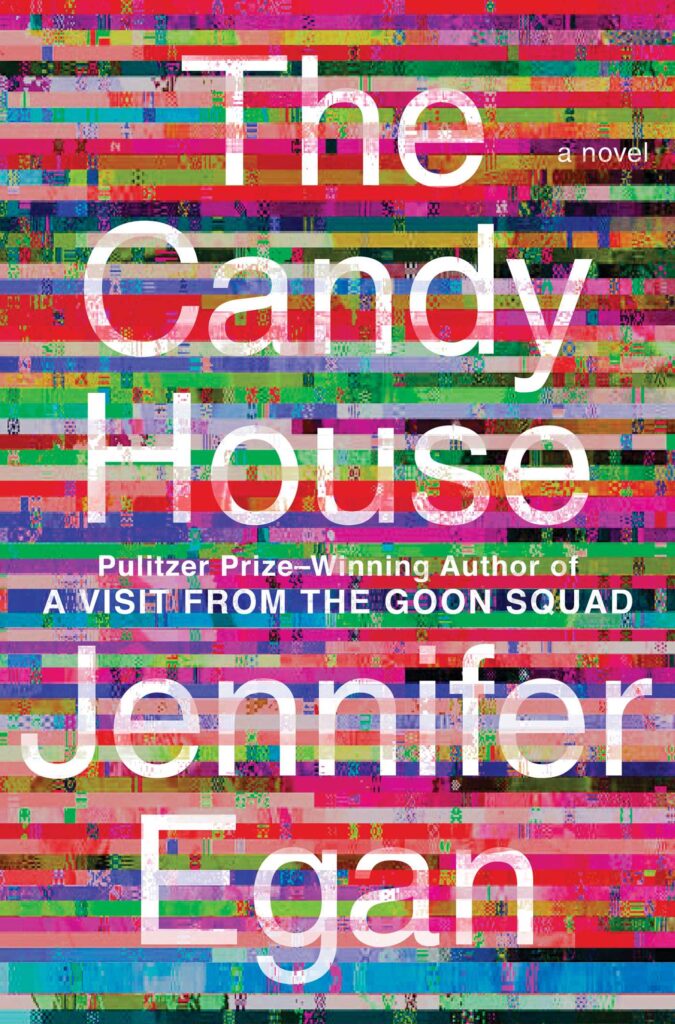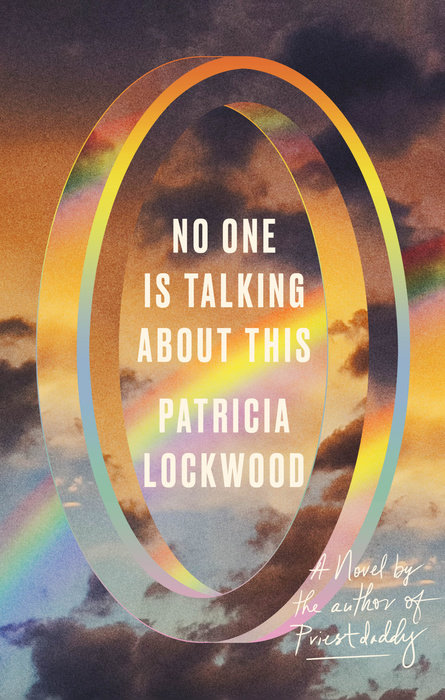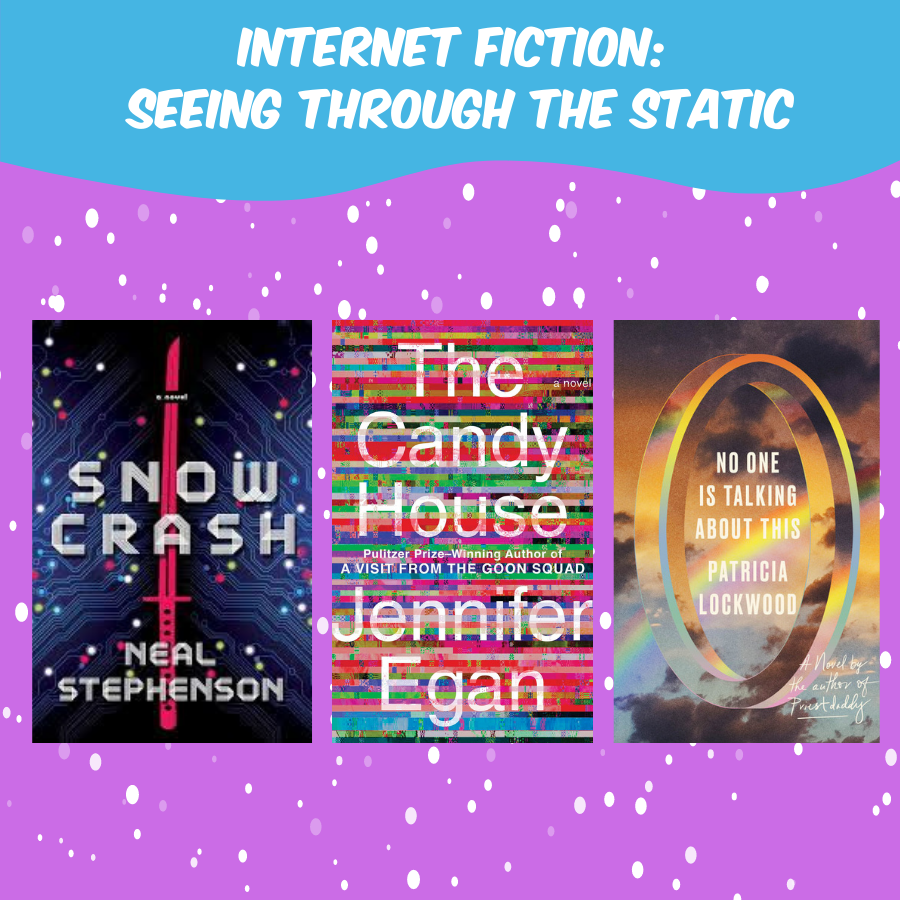The internet is difficult to describe. It is a porous thing, multifaceted, influencing and infiltrating every aspect of our lives. We enter and exit it potentially hundreds of times a day, each time our thumbs bring us back to Instagram or a notification buzzes in our pocket. Many of its uses are mundane, but it offers endless space and potential to imagine. Internet fiction considers this technology as a setting in which we live our lives, and also often as an agent that helps to shape them.
Internet fiction helps to consider the web’s paradoxes. By its very nature, the internet is shared, networked, collective. But our experiences of it are individual and diffused. Algorithms exist to individuate our experience to varying degrees, to tailor our feeds to our individual interests in order to keep our attention for as long as possible and to steer us towards consumables of interest.
Yet, within it, we can find sites of communal exchange, and community making. Since I was a preteen creating avatars in the Palace Chat, meeting people in AOL Chatrooms, it really has always felt like a place I could go—to discover new music, to write where people would read it, to meet people I couldn’t find in the hallways of my high school. There are spaces for any kind of person to find others who share their interests–no matter how obscure.
This all utopian, of course. We know internet access is limited to certain groups of people, that some regimes censor it, that it can help people to organize violent groups to do terrible acts. For every feminist cause aided, for every positive example of its ability to help spread information and organize like the Arab Spring or Black Lives Matter, there is a January 6.
These complexities and the dark possibilities, coupled with the ever-more-quickly-evolving nature of the internet, often make it a dark backdrop for fiction that take it as a central theme. After reading and watching enough science fiction, new systems and ways of connecting online always seem somehow ominous, or even villainous.

I considered these themes while reading Jennifer Egan’s new novel, The Candy House, which tells, among other stories, the story of the emergence of a new kind of internet, Bix Bouton’s Own Your Consciousness, which allows the user to preserve and view and share all of their memories in their full complexity, complete with their accompanying thoughts and emotions. If the user elects, they may upload these memories to the Collective Consciousness, and, in exchange, they gain access to all of the other memories shared within it. The Collective Consciousness, like our own internet, has many positive effects, ranging from the reconstruction of personal histories to the virtual end of child pornography.
Collective Consciousness ushers in “a global rise in empathy that accompanied a drastic decline in purist orthodoxies—which, people now knew, having roamed the odd, twisting corridors of one another’s minds, had always been hypocritical.” It is all the gleaming possibilities of the internet that early theorists celebrated and hoped for–a democratization of information, connectedness giving way to real connection.
It is also slightly insidious, although its insidiousness is not central to the plot, even in the face of a sympathetic alternate group of those eluding the ever-encroaching Collective Consciousness. But we feel it through Egan’s tone and through the reactions of some of the characters. Some of them know there are far flung negative implications to this kind of technology, but they, like us, seem to have trouble expressing exactly what they are.
Ultimately, in Egan’s framing, eluders are choosing freedom over surveillance, and those who elect to participate in the Collective Consciousness are choosing the collective over exile. The Collective Consciousness is not exactly neutral, but it also is not necessarily evil. It is, perhaps, only imperfect. Egan is a beautiful storyteller and she does an excellent job of wading through these complexities with humor.

It’s fitting that the some of the book’s most revealing revelations–what Bix Bouton called an “anti-vision”– comes while a character is looking up at a gray and snowy sky that resembles a void because, throughout this reading, I was thinking about Neal Stephenson’s 1993 science-fiction novel, Snow Crash, an early example of internet fiction, the name of which, he says came from the screen an old Mac would produce when it crashed, “like static on a broken television.”
Much of that book takes place in the metaverse, a virtual space where people interact with others through their avatars, not that unlike the Palace chat I referenced or Second Life. We might say that Snow Crash was prescient, or we might may say that Stephenson was a visionary. His ideas and terminology predicted but also inspired the ways in which virtual worlds developed. Second Life’s creator drew inspiration from the book and the concept of and the term metaverse both are taken directly from it. It is somewhat troubling to consider how these ideas were developed when, in the book, the tycoon behind the metaverse, L. Bob Rife, seeks to use his invention to control the masses of the world.
Almost thirty years later, Snow Crash remains relevant and somewhat timeless. In it, we see the platform’s potential evils and still are drawn towards all of the other possibilities it promises.

Last year was a big year for so-called internet novels, a major one being Patricia Lockwood’s No One is Talking About This. The novel’s unnamed narrator, an internet celebrity, like the author herself, lives her life predominantly online, a space that she refers to as the portal. This book again relies on the image of snow. The portal is a “blizzard of everything,” but also a “place of the great melting.” Like a whiteout, there is so much to see, it is difficult to make out anything at all.
This book, written in a fragmented style, captures the feeling and the frenzy of the internet, the nonsense and depravity of it. It touches upon the logic and the language we all share online and how it is often somewhat warped.
“Why were we all writing like this now,” Lockwood’s narrator asks, referring to a tweet, but perhaps also to the style of the book itself. “Because a new kind of connection had to be made, and blink, synapse, little space between was the only way to make it. Or because, and this was more frightening, it was the way the portal wrote.”
The internet is shaping our use of language, our psyches, and our literature. Even without the aid of Bix Bouton’s technology, the internet is already kind of a collected consciousness, a site of cultural exchange, where our ideas and our modes of communication are shifted and formed. It is no coincidence that each of these novels used blinding blizzard conditions to describe its nature. Its proliferation and magnitude, the sheer amount of information contained within it, the way it encircles us, makes it impossible to see clearly or describe fully.
Marshal McLuhan, lauded communication theorist, once said, “One thing about which fish know exactly nothing is water.”
Or, less enigmatically, media scholar Lisa Gitelman, said in her book Always Already New, “Inquiring into the history of a medium that helped to construct that inquiring itself is sort of like attempting to stand in the same river twice: impossible, but it is important to try.”
We are so influenced by the internet, it is so embedded into our lives, that it is difficult to see where it ends and the other, “realer” world begins.
In The Candy House, it becomes clear that it isn’t always possible to construct a story in its entirety using the Collective Consciousness. Eluders and circumstances make the memories contained within it incomplete and imperfect. There are limits to to the technology. The full story requires embellishment. It requires a story teller. Otherwise, we are left with only disconnected information. I am reminded of Melissa Feebos’ Body Work, and in Steph’s posts about memoirs – both speculative and restrictive.
Egan writes, “only {…} fiction—lets us roam with absolute freedom through the human collective.” Maybe, in a landscape that seems impossible to navigate, it is fiction that allows us to truly see.


